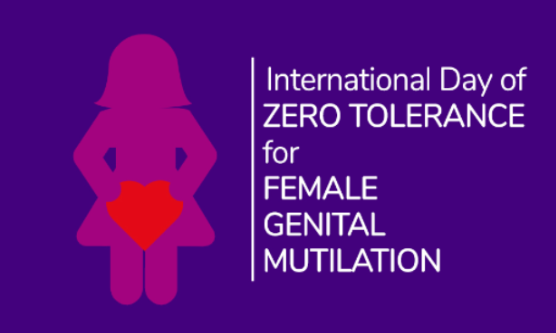On the occasion of the International Day of Zero Tolerance for Female Genital Mutilation (FGM) on February 6, 2025, Nigeria’s Minister of Women Affairs, Imaan Sulaiman-Ibrahim, reaffirmed the Federal Government’s commitment to eradicating FGM in the country.

She emphasized that this year’s theme serves as a call to accelerate progress, deepen partnerships, and translate commitments into tangible actions.
Background on FGM in Nigeria
FGM is a deeply rooted cultural practice in Nigeria, affecting a significant number of women and girls. According to the Nigeria Demographic and Health Survey (NDHS) 2018, 20% of women aged 15 to 49 have undergone FGM.
The prevalence varies across regions, with the South East (35%) and South West (30%) reporting the highest rates, while the North East has the lowest at 6%.
Most FGM cases (86%) are performed before the age of five.
Health Implications
FGM has no health benefits and poses severe risks, including:
- Immediate complications: severe pain, hemorrhage, infections, and shock.
- Long-term effects: complications during childbirth, increased newborn deaths, and psychological trauma.
The World Health Organization (WHO) classifies FGM into four types, all of which are practiced in Nigeria, with Type II (partial or total removal of the clitoris and labia minora) being the most common.
Legal and Policy Framework
Nigeria has taken significant steps to combat FGM through legislation and policy initiatives, including:
- The Violence Against Persons (Prohibition) Act (VAPP) 2015, which criminalizes FGM.
- The National Policy and Plan of Action for the Elimination of FGM (2021–2025), which provides a roadmap for eradicating the practice.
However, as of 2022, only 19 states and the Federal Capital Territory (FCT) have adopted the VAPP Act, leaving gaps in legal protection in several regions.
Government Initiatives and Partnerships
Under Minister Imaan Sulaiman-Ibrahim’s leadership, the Federal Ministry of Women Affairs has intensified efforts to eliminate FGM through:
- Policy Enforcement: Advocating for the adoption and strict implementation of the VAPP Act across all states.
- Community Engagement: Partnering with traditional and religious leaders to shift social norms against FGM.
- Healthcare Provider Training: Equipping health workers to manage FGM complications and discourage its medicalization.
- Public Awareness Campaigns: Utilizing media platforms to educate the public on the dangers of FGM and legal consequences.
The government also collaborates with UNFPA and UNICEF through the Joint Programme on the Elimination of FGM, supporting interventions aimed at accelerating its abandonment.
Challenges and the Way Forward
Despite progress, challenges persist, including:
- Deep-rooted cultural beliefs that sustain the practice.
- Weak law enforcement in some states.
- Medicalization of FGM, where healthcare providers perform it under the guise of safety.
To overcome these, Minister Imaan Sulaiman-Ibrahim stresses the need for:
- Enhanced Collaboration with civil society, local leaders, and international bodies.
- Increased Funding for FGM prevention programs and survivor support services.
- Better Data Collection to track progress and inform policies.
- Empowerment Initiatives for women and girls to reduce vulnerability to FGM.
By accelerating progress, deepening partnerships, and translating commitments into tangible actions, Nigeria aims to end FGM and protect the rights and well-being of its women and girls.

